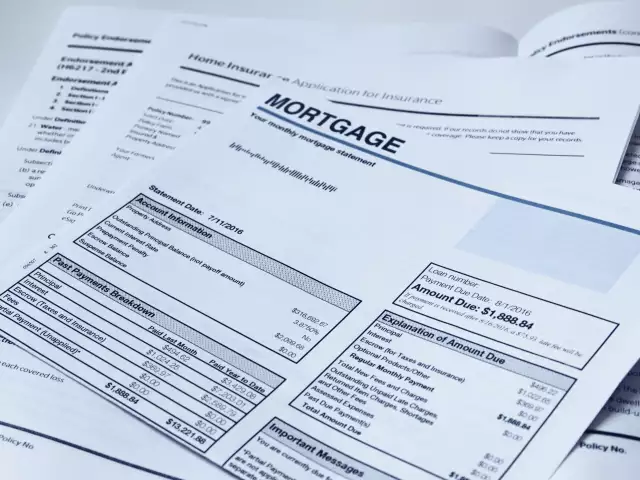How Mortgage Payments are Determined
Owning a home is a dream for many people, but it often requires taking out a mortgage to finance the purchase. Understanding how mortgage payments are determined and the factors that impact them can help you make informed decisions when it comes to buying a homeand managing your finances. In this article, we'll cover everything you need to know about mortgage payments, including the calculation process, factors that impact payments, the importance of timely payments, and tips for managing them.
Calculation Process
The first step in understanding mortgage payments is to know the calculation process. There are four key components that go into determining your mortgage payments:
Principal Amount -This is the amount of money you borrow to buy your home. The larger the principal amount, the higher your mortgage payments will be.
Interest Rate -This is the rate at which you'll pay interest on your loan. Interest rates are influenced by a variety of factors, including inflation, the economy, and government policies. Generally, the higher the interest rate, the higher your mortgage payments will be.
Loan Term - This is the length of time over which you'll repay your mortgage. The most common loan terms are 15, 20, and 30 years. A longer loan term will result in lower monthly payments, but you'll pay more in interest over the life of the loan.
Amortization Schedule -This is a table that shows how your mortgage payments will be allocated over the life of the loan. In the early years of your mortgage, a larger portion of your payment will go toward interest, while in later years, a larger portion will go toward the principal.
Factors Affecting Mortgage Payments
Several factors can impact the size of your mortgage payments:
Interest Rates -As mentioned earlier, interest rates play a significant role in determining your mortgage payments. A higher interest rate will result in higher payments, while a lower interest rate will result in lower payments.
Loan Term -The length of your loan term can also impact your payments. A longer loan term will result in lower monthly payments, but you'll pay more in interest over the life of the loan.
Down Payment Amount - The amount of money you put down on your home can impact your mortgage payments. Generally, a larger down payment will result in lower monthly payments.
Type of Mortgage -There are several types of mortgages, including fixed-rate, adjustable-rate, FHA, and VA loans. Each type of mortgage has its own set of rules and requirements, which can impact your payments.
Property Taxes -Property taxes are assessed by your local government and are based on the value of your property. These taxes are typically paid as part of your monthly mortgage payment.
Homeowners Insurance -Homeowners insurance is required by most lenders and is designed to protect your home and personal property in the event of damage or theft. The cost of homeowners insurance is typically included in your monthly mortgage payment.
Private Mortgage Insurance (PMI) -If you put down less than 20% on your home, you may be required to pay for private mortgage insurance. This insurance is designed to protect your lender in the event that you default on your loan. PMIis typically included in your monthly mortgage payment.
Importance of Timely Mortgage Payments
Making timely mortgage payments is crucial for several reasons:
Impact on Credit Score -Your credit score is a measure of your creditworthiness and is used by lenders to determine whether to approve your loan application and what interest rate to offer you. Late or missed mortgage payments can negatively impact your credit score.
Risk of Foreclosure -If you fall behind on your mortgage payments, your lender may initiate foreclosure proceedings. Foreclosure can result in the loss of your home and can severely damage your credit score.
Financial Stability -Timely mortgage payments are also important for your overall financial stability. If you're unable to make your mortgage payments, it can lead to significant financial stress and put your other financial goals at risk.
Tips for Managing Mortgage Payments
Here are some tips for managing your mortgage payments:
Budgeting -Creating a budget can help you better understand your finances and ensure that you're able to make your mortgage payments on time. Make sure to factor in all of your expenses, including your mortgage payment, property taxes, homeowners insurance, and PMI.
Refinancing - Refinancingyour mortgage can be a good option if interest rates have dropped since you first took out your loan. Refinancing can lower your monthly payments and save you money on interest over the life of the loan.
Making Extra Payments -Making extra payments on your mortgage can help you pay off your loan faster and save you money on interest. Consider making bi-weekly payments or adding an extra amount to your monthly payment.
Seeking Assistance -If you're experiencing financial difficulties and are struggling to make your mortgage payments, there are resources available to help. Contact your lender to discuss options such as forbearance, loan modification, or refinancing.
In conclusion, understanding how mortgage payments are determined and the factors that impact them can help you make informed decisions when it comes to buying a home and managing your finances. Make sure to prioritize timely payments, and consider taking advantage of resources like refinancing or making extra payments to save money in the long run. With careful planning and management, you can successfully navigate your mortgage payments and achieve your homeownership goals.







